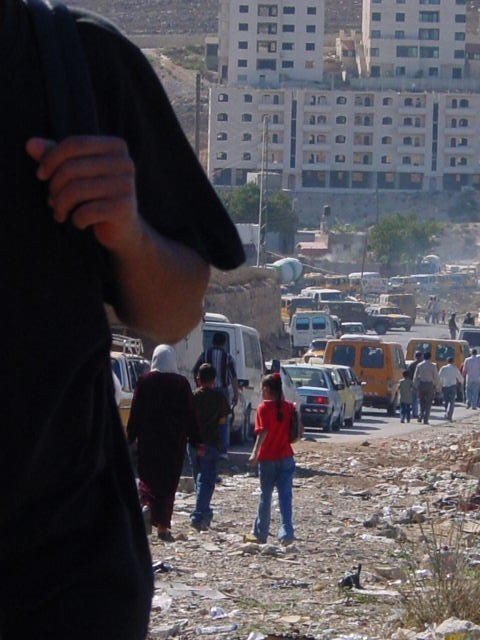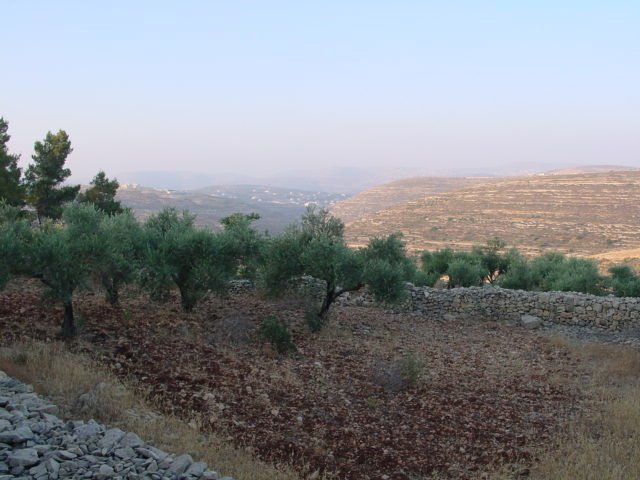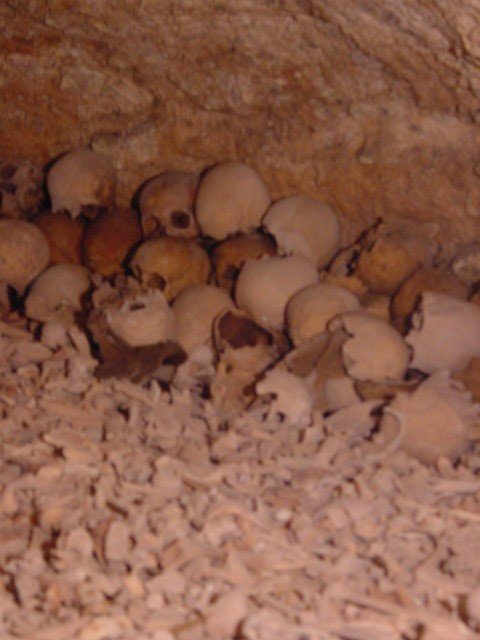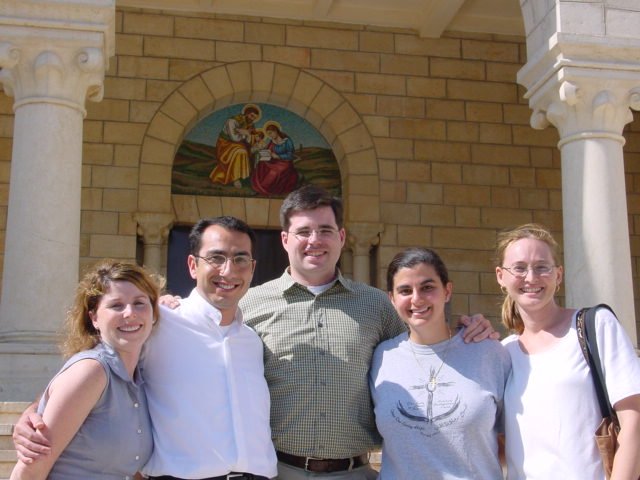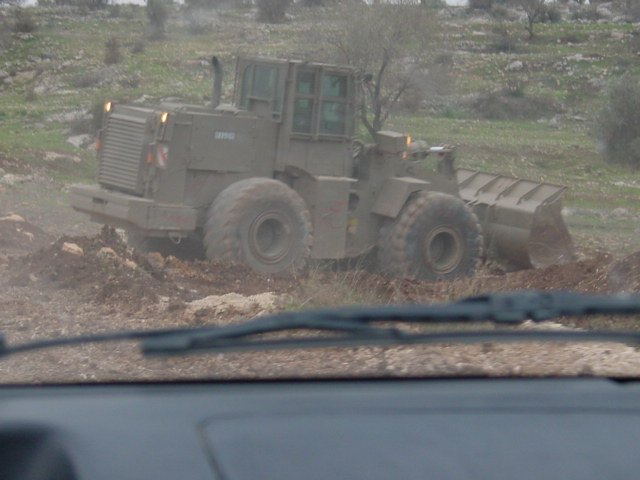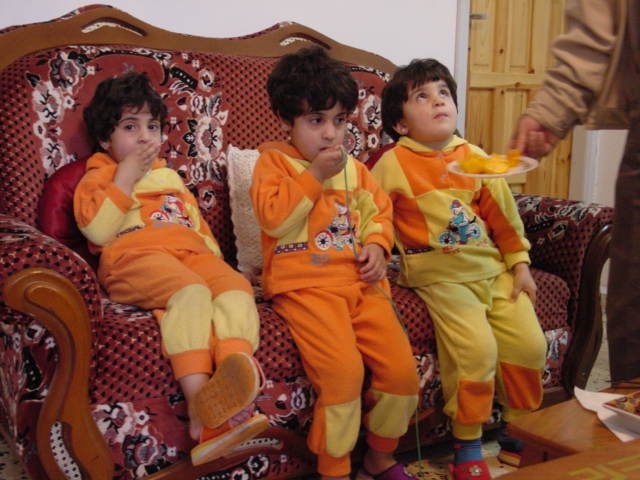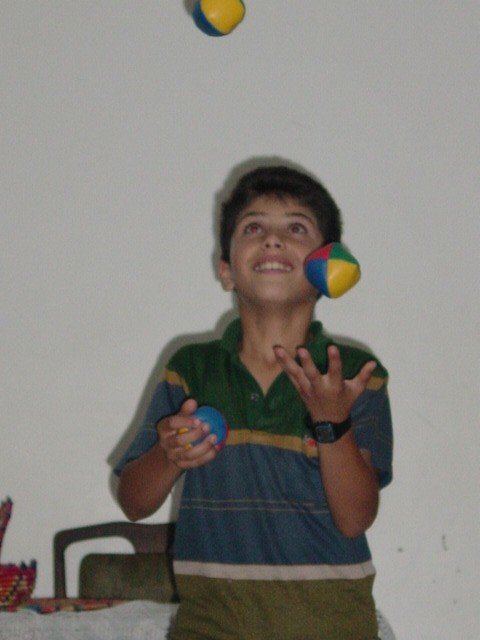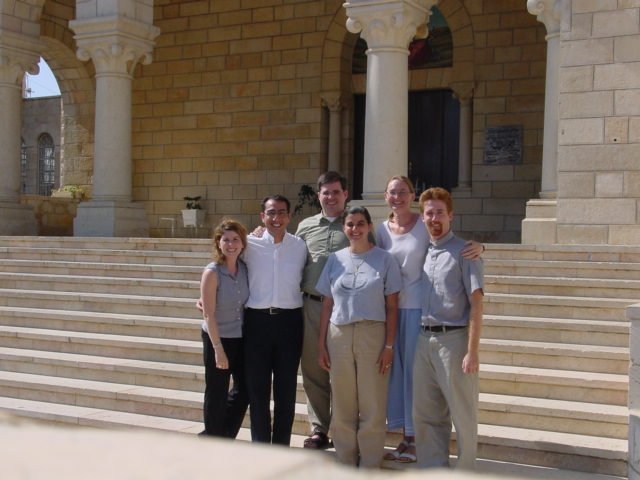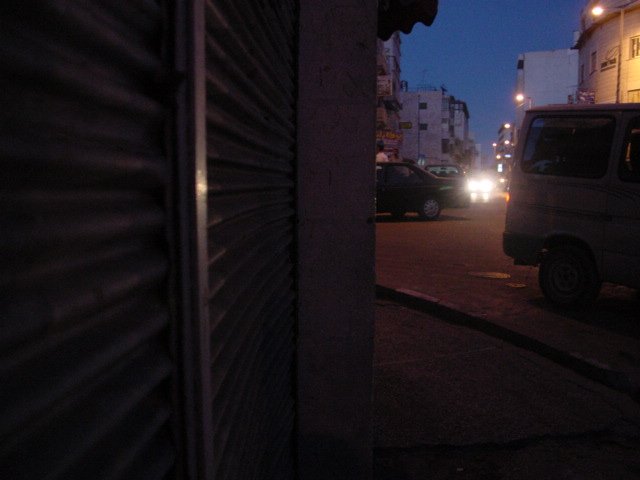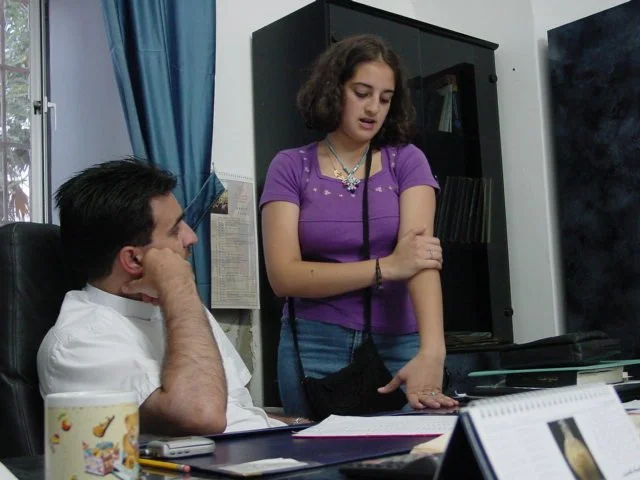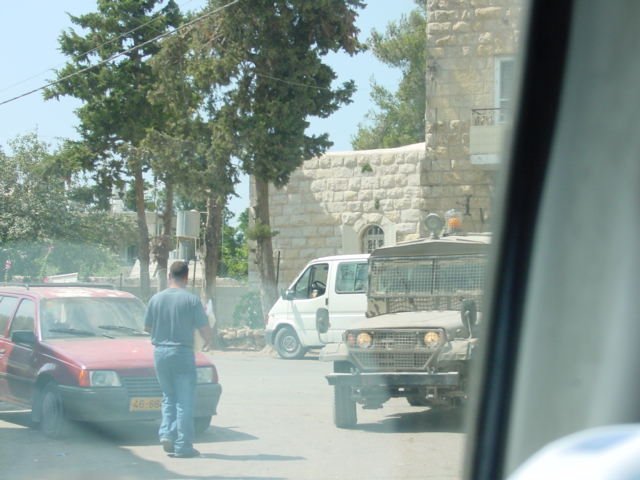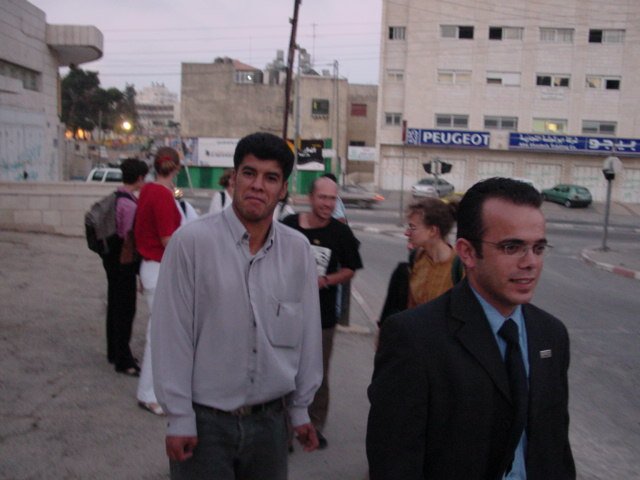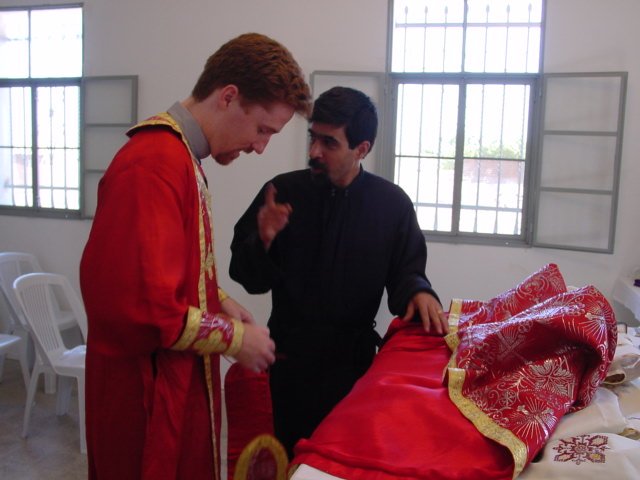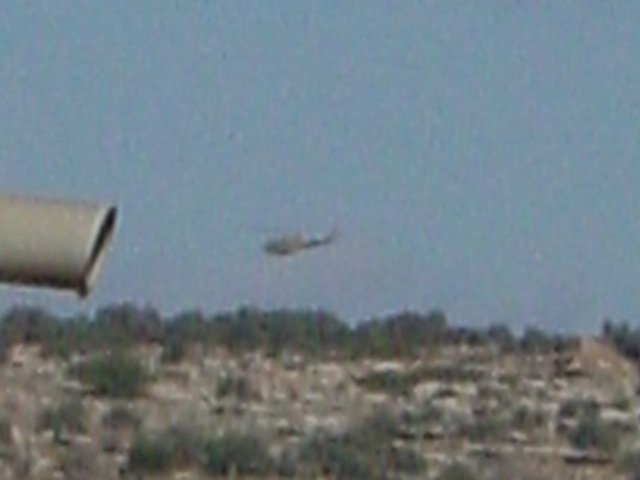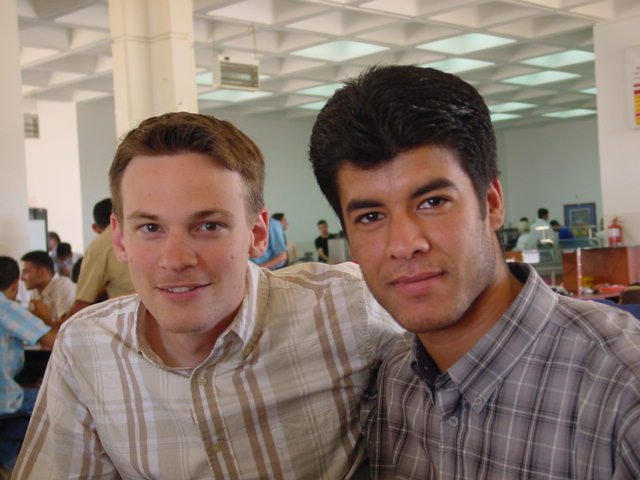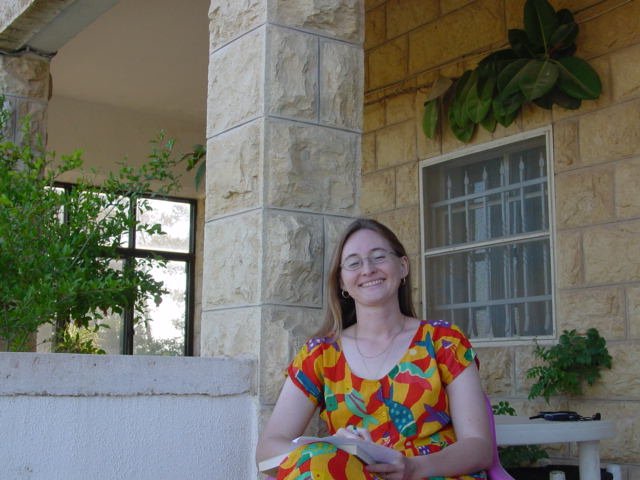July, 2003
No visa, simply "provisional approval." He has to wait for another process - probably being an eighteen year-old young man from the Jenin area set off some buzzers. Now his application goes back to Homeland Security, which could take anywhere from a few days to a few months. This is a young man who has been involved with a number of Israeli-Palestinian peace exchange programs, but his profile isn't right.
This evening, the Birzeit students came over for a little potluck party at Star Mountain.
The issues of the Security/Separation Wall is high on the agenda. It has become the new stumbling block in the negotiating process towards a settlement of the conflict here.
We went down to Birzeit this morning to worship in the Latin Church. It is Fr. Iyad's last Sunday before heading off to the seminary in a matter of weeks.
Throughout this conflict, there are many points of disagreement: settlements, Jerusalem, refugees, etc. However, there are some things on which there is near universal acceptance. One of these is that the Hebron settlements must be removed in any kind of final status. Seven years into Oslo (now ten), the Palestinians could always point to the continued presence of these settlers as evidence of the Israelis’ bad negotiation faith.
Refugees in West Bank camps have been under Jordanian, Israeli, and now Palestinian regimes in the past half century. Our host said, "For us refugees, the Palestinian Authority is not home - it is another host country. Our homes are on the other side of the border."
We went down to Birzeit village where we met up with the family with whom we were neighbors two years ago when we studied at Birzeit.
We caught the shared taxi down to Birzeit to have lunch at the Latin Convent with Fr. Iyad and his American visitors.
About to enter eighth grade, he is spending part of his summer away from his home in Jenin and visiting his brother, a student at Birzeit. We sat for a bit and chatted before class started.
Did we mention how infuriating this place can be? And this is for the people who are trying to get permission, trying to go the legal route. And for doing so, for kowtowing to this illegal Occupation and its illegal laws, for playing along, they are punished.
Today was very very hot. We spent most of it hiding out at home and trying not to exert ourselves (which meant a fair amount of TV watching and web surfing).
We arrived at Salem DCO to find a giant gate in front of the military camp. The Wall is being built here, and with the gate closed, it appeared as though there was no passage. But the man working the bulldozer assured us we could enter by going around the gate - after first walking between the fence and the trench running parallel to it.
In the evening, when it was cooler, Marthame went out to say hi to folks and let them know we were back around.
Founded strategically in the heart of the West Bank in 1978 under the pretext of a military base, the settlement now has 15,900 residents, 40% of whom are from the former Soviet Union. Especially disturbing is that most of the settlement's sewage is released into a dry riverbed near the town of Salfit, often polluting their water pumping station.
Fr. Iyad was there with his summertime volunteers from the States, members of National Presbyterian Church in Washington, DC.
They're both from Gaza and neither has been home in years - Gazans are no longer given West Bank permissions, so a trip home can mean no exit out of the Strip. One is going home tomorrow, the other will be going to continue his studies in London. He won't be able to see his family before he leaves, though, because he won't be able to leave Gaza once he goes back. Gazans seem to be bearing the brunt of the injustices of occupation and siege.
Marthame and Fr. Fadi co-officiated the service, assisted by three altar-girls. The text for the morning included the parables of the lost sheep and coin, and Marthame preached about how they illustrate the economy of heaven as something very different from the economy of earth - not bad for last minute.
We went straight to the St. Andrew's Anglican Church to see Fr. Fadi, born and raised in Zababdeh, and brother of Fr. Firas, our good friend and Zababdeh's Melkite priest.
Before dawn, the family patriarch went off to the Mediterranean to go fishing. He came back about the time we were waking up, carrying six kilos of fresh fish - we know what we're having for lunch!
While we waited, an Israeli army jeep stood at the main traffic circle, then drove back past a couple of times. An armored personnel carrier rolled through town, too, as normally as if this was the afternoon traffic. It's amazing what folks can get used to.
By the 1920s, especially under British Mandate rule, the Old City had largely taken the segregated form we are familiar with today: the Jewish Quarter, Muslim Quarter, Christian Quarter, and the Armenian Quarter.
A quick taxi ride got us to the Popular Arts Center in al-Bireh (Ramallah's twin city) in time to catch another documentary film. Tonight's offering was "What's Next?" by a local filmmaker about the Ramallah incursion last year.
Finding the simplest things can be daunting here. Marthame left the University after class, headed to the village of Birzeit with two things to buy: shoelaces and a phone cord.
The roundabout trek still took three and a half hours, though, but we made it in the end.
In the evening, Fr. Firas, the Melkite priest, came over with his family for a visit. He has asked Marthame to pray part of the liturgy tomorrow. In Arabic. Chanted.
We were awoken at about 1:30 in the morning by an Israeli helicopter flying low through the valley.
When we arrived at the checkpoint, a furious-looking Ethiopian soldier barked at the driver and demanded our IDs. He examined them with all the scrutiny of a Vegas dealer dealing blackjack, slammed the door, and sent us on our way. Many in the van were frustrated that we were forced to wait for such a ridiculous security check. Others were grateful the check was quick and painless.
Most of the folks were coming the other way, returning from work or errands in Ramallah to their homes in Surda, Abu Qash, Birzeit, and beyond. Donkey and horse carriage rides were being offered for fifteen shekels. Old women in traditional dress, couples carrying newborns, and young men with their cellphones all shared the commute.
The individual attention is good, but it'll be nice to have other students with whom to share the experience!

